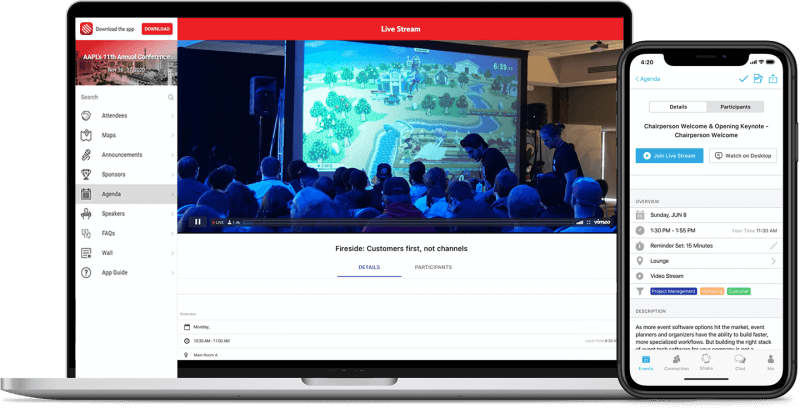New Jersey is but one state where challenges to private lending are occurring.
AAPL’s Government Relations Committee (GRC) is constantly scanning nationwide legislation to review for current changes to the law that could affect private lenders. Once the GRC is aware of a potential issue facing our community, we serve as a voice to make sure private lenders are represented in decisions that affect them.
The GRC was born after a Day on the Hill in Washington, D.C., when several leaders in the industry met with members of Congress to discuss the various federal legislation that affect private lenders. After a day of lobbying and internal discussion, the group put together its first position piece, tackling the Home Mortgage Disclosure Act (HMDA) and other consumer-based pieces of legislation that affect business purpose loans. The full position piece can be found at aaplonline.com/government.
Florida Challenges
Shortly after, the GRC met another challenge. Florida, for the third year in a row, attempted to change its mortgage licensing laws to require private money lenders making business purpose loans to become licensed in the state. The bill was backed by interested parties in Florida as an attempt to reduce competition from private lenders in the state.
The GRC immediately sprang into action, sending several parties to Tallahassee to speak in front of the legislative committee voting on the bill. Nema Daghbandan, Esq., of Geraci LLP, and Edwin Epperson, a private lender based in Florida, were among the instrumental players representing the GRC’s position against the mortgage licensing bill. The GRC also had private lenders across the country that lend in Florida send petitions to the legislature opposing passage of the bill.
All this effort led the Florida lawmakers to pass a different version of the bill that did not include the mortgage licensing law changes. The strong opposition led by the GRC and the private lending community was essential to protecting the industry’s interests.
New York Bill Targets Fix-and-Flip Loans
Currently, the GRC is petitioning New York legislators who are trying to pass a new bill that would affect private lenders (and their borrowers) within New York City. If passed, New York Senate Bill 3060-E will eliminate the ability of private lenders to fund fix-and-flip loans within the city limits. Upon the sale of a property, if an owner has held the property for less than two years, there is up to a 20% tax to be assessed upon the sale. Assessing huge tax penalties for short-term ownership will prevent borrowers from making a living by purchasing homes to rehabilitate and then selling them for a profit. In turn, many private lenders who help these borrowers by funding their loans will need to direct their money elsewhere, essentially eliminating short-term fix-and-flip projects within the city. Ultimately, this harms New York consumers, who are already in dire need of housing.
The GRC learned of this proposed legislation early in the process. There is still time to prevent the bill from passing, and you can do your part by reviewing the GRC’s position on the bill and signing our online petition at aaplonline.com/petitions.
New Jersey Licensing Requirements
Sometimes there are changes that may not affect the community as a whole, but a small subset of our private lenders. For private lenders in New Jersey that make and service consumer purpose loans, New Jersey has recently enacted legislation that will change your licensing requirements.
The new legislation introduced in New Jersey mandates loan servicers to be licensed and to obtain a $100,000 bond before operating in the state. The law passed April 29 and went into effect July 28, 2019.
The New Jersey Mortgage Servicers Licensing Act also specifies additional obligations and responsibilities of licensed servicers, such as record keeping, filing annual reports and specific disclosure requirements.
Some banking institutions and credit unions are exempt from the rule, as are already-licensed New Jersey mortgage lenders. To act as servicers, these already-licensed entities must follow the surety bond requirements of the law and carry errors and omissions coverage as specified under the Act.
Moreover, entities that service five or fewer residential mortgage loans per year are also exempt from the provisions of the law.
The state requires that those entities needing a license must register with the Department of Banking and Insurance. The main office and each branch office of the applicant require separate licenses.
To obtain a license, individuals will need to fulfill the following requirements:
- Identify a qualified individual for the main office and a branch manager for any branch office; each of these must have at least three years of experience in the mortgage servicing business within the five years preceding the application.
- Demonstrate that within the preceding seven years, the applicant, the qualified individual, control persons and branch managers have no felonies for which they been convicted, pleaded guilty or nolo contendere to, in a domestic, foreign or military court, or any crime related to fraud, dishonesty, etc.
- Demonstrate the financial responsibility, character and general fitness of the applicant, managers, officers, qualified individuals and control persons so as to warrant a determination that they will operate according to the provisions of the Act.
- Meet the requirements to post a $100,000 surety bond (per office location), a fidelity bond, and secure errors and omissions coverage (see next section for more information about the bond requirement).
- Complete a license application on a form provided by the Commissioner.
- Make sure no material misstatement has been made in the application.
- Provide information concerning the identity of the applicant, control persons, the qualified individual and branch managers.
- Meet any other requirements determined by the Commissioner of Banking and Insurance.
- Pay an initial license fee of $1,000.
The first of these applications will expire at the end of the year for which they have been issued, unless issued on or after Nov. 1. Licenses issued after Nov. 1 will expire at the end of the following year.
In the year in which the license expires, they will need to be renewed between Nov. 1 and Dec. 31. The renewal fee is $3,000, which is higher than the stand-alone license because it is valid for three full years.
The Act also lists specific prohibited activities that would result in a servicer being penalized or losing their servicing license.
The $100,000 bond requirement guarantees a servicer’s compliance with the provisions of the Act. It is further conditioned on a servicer’s performance of all agreements and commitments they have with mortgagors and mortgagees. It will encompass all funds received in their capacity as a servicer, regardless of where those funds originated.
Any servicer that violates such an agreement or fails to perform per the terms of a contract, thereby causing damage to a mortgagor, subjects themselves to a possible claim against the surety bond.
If a claim is filed against a servicer’s bond, an investigation will ensue, and the surety company will confirm the claim is valid. If it determines the claim is accurate, it may extend compensation to the claimants for up to the full amount of the surety bond, depending on actual or future damages.
New Jersey’s law is not new. It is just the latest of a string of states that are beginning to require licensing for nonbank mortgage servicers. Pennsylvania passed a law that requires nonbank servicers to get licensed and bonded by June 2018. That law also establishes a minimum net worth criterion for which servicers must comply.
For most mortgage servicers, the licensing process is handled by the Nationwide Multistate Licensing System (NMLS), and they must submit their full application and supporting documents via the NMLS website. ∞
The GRC strives to protect the interest of the private lending community. From its Day on the Hill to reviewing New Jersey licensing, the GRC is committed to updating AAPL’s members on the issues that affect them.
For more information regarding the GRC and its activities, please go to aaplonline.com/government.












Leave A Comment